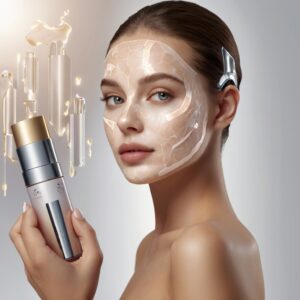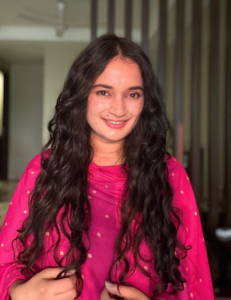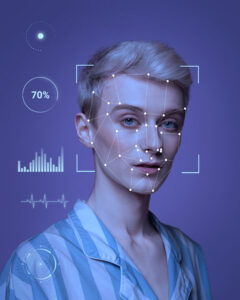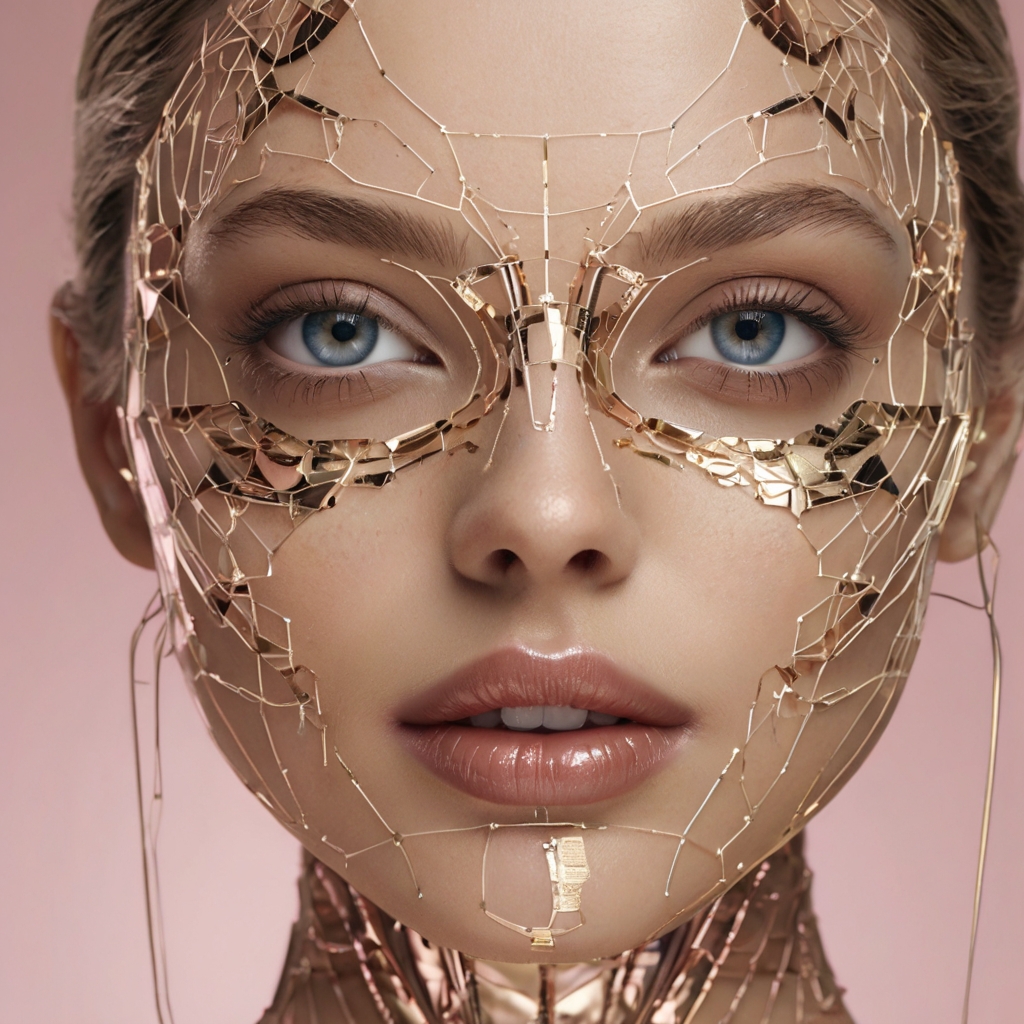The concept of beauty is continuously evolving — from Plato to Aristotle to Kant, everyone has interpreted beauty in their unique ways, emphasizing different aspects like geometry, proportion, or the reflection of the inner self. So, the idea of beauty becomes a cultural conversation, which in today’s world is mostly influenced by the norms of social media — flawless skin that shines through filters and fillers. And the playbook that promises to deliver perfect beauty, mentions the rules guided by artificial intelligence (AI) in the beauty industry.
Is your skin dry? Oily? Sensitive? Or a Combination skin that refuses categorisation? Well, you don’t need to worry about investing your time in looking for the perfect product. Generative AI can now offer a personalised solution – using real-time 3D scans, AI analyzes your skin, revealing underlying issues and recommends a customized skincare regimen with targeted ingredients specific to your skin.
AI-generated formulation for skincare

AI Generated
AI is already aiding the R&D processes by influencing formulation by optimizing ingredient combinations for maximum efficacy. Imagine a toner or serum blended with vitamins and antioxidants – in the exact amount that is required to get radiant skin. This takes the concept of effective skincare beyond the one-size-fits-all approach.
A write-up in Women’s Wear Daily further explains the intricacies of AI’s involvement in the neural network of skin care formulations. Imagine if you want a specific strain of Edelweiss (with a specific concentration of leontopodic acid and chlorogenic acid) in your product to yield maximum results, but considering the rarity of Edelweiss, it is difficult to grow the plant with the specific requirement. Here, AI can help in obtaining Edelweiss with essential nutrients by suggesting optimal conditions for precision farming – the quality of soil, oxygen levels, UV, and native environment. Using this technology, Odacite launched Edelweiss Extreme Intense Repair Eye Cream with Edelweiss as its star ingredient.

Dr Ann
“A personalized approach in skincare can indeed yield superior results by tailoring treatments to individual needs. By using AI and other advanced technologies, we can create highly effective products that address specific skin concerns, potentially offering better outcomes than generic solutions.”, states Dr Ann Nainan based in the UK.
Dr Nainan advocates a holistic approach to healthcare, integrating physical, mental, and spiritual dimensions into her treatment plans. While she agrees with the limitless potential of AI in generating skincare products, she also raises concern about the possibility of exacerbated unrealistic beauty standards – “This could lead to increased stress and negative self-image. Brands and practitioners need to promote a balanced perspective on beauty, emphasizing health and well-being over unattainable ideals.”
AI Tools for Suggesting Personalised Products
Brands are constantly leveraging AI’s capability to create customised products, for instance, L’Oréal’s AI hair color system, Coloright, uses a special algorithm to give professionals a custom color option for each client. Sephora’s AI-powered Color IQ Match identifies the foundation that precisely matches skin. Nivea Skin Guide analyses customers’ skin, recommends skincare solutions and tracks improvements by examining each new selfie.
These are just a few examples of the AI-tech market growing exponentially. The future seems promising — The Business Research Company reported that the AI in beauty and cosmetics market size will grow to $8.1 billion by 2028. Another research by Epsilon suggests that 80% of customers prefer buying personalised products and 90% find the aspect of personalised products quite appealing.

Reflecting on this increasing consumer demand for personalized experiences, Aishwarya Kandpal, a beauty influencer highlights the dual-edged nature of AI’s impact on the beauty industry – “I think it already is in terms of bringing the customer closer to reality than leaving them imagining how a makeup product would look on them, it’s definitely helping people “virtually try” more products before buying them and that’s a definite welcome step in a consumers journey. At the same time, it’s also changing the way we look at ourselves by giving us free access to tools to enhance/ modify/ alter our skin color, nose, and other features. Which I feel is slightly alarming and dangerous both.”
What does the AI-beauty future look like?

AI is expected to continuously learn and provide valuable feedback for emerging beauty trends. With the advent of AI, we foresee a future in virtual reality, much more advanced than what we have currently. Metaverse will enable customers to engage with digital components and explore the effects of customised products on their bodies to obtain real-time data sets and pictures.
The other trend that is evident from examining the behavioural aspects of Gen Z and younger millennials is the awareness of using environment-friendly products. Brands are making a conscious decision to integrate sustainable ingredients in their products and packaging. The use of virtual product samples will help in reducing waste and minimising environmental impact.
Mintel 2024 report states:
“Mental and physical well-being are different for every person. As a result, brands need to acknowledge that personalized approaches to beauty and wellness are necessary so that individuals can tailor their routines to meet their specific needs.”
This report suggests that brands also need to recognise the importance of nutrition in maintaining high beauty standards and incorporating a customised nutrition plan will enhance the effects of personalised beauty products.
Focusing on a comprehensive wellness solution, we predict a rise in nutricosmetic methods. It takes a holistic approach that goes beyond treating surface-level skin issues. Integrating sensory elements enhances the mind-skin connection which ultimately does wonders for the mind and skin, promoting a stress-free radiant glow from within.
In conclusion, generative AI is destined to transform the beauty industry and take us all towards a world of hyper-personalisation – empowering consumers with immersive experiences. From meta versus aiding virtual try-ons to AI-engineered ingredient formulations, this technology has limitless potential for customers to make sustainable and informed decisions. However, as we move forward, let’s see whether AI is leveraged for self-expression or dictates beauty choices.

